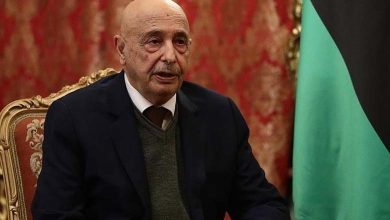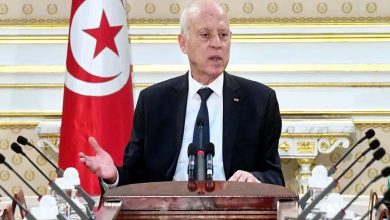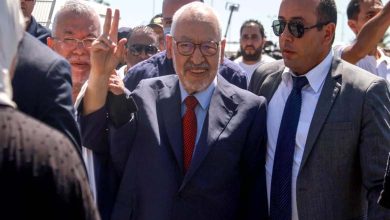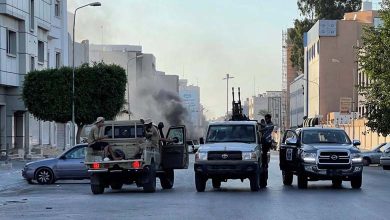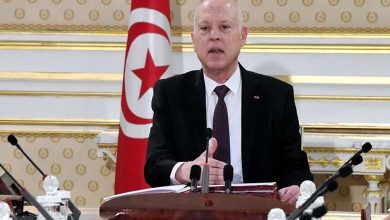Libya Caught in the Crossfire of Great Power Rivalries… What Are the Possible Scenarios?
Libya Caught in the Crossfire of Great Power Rivalries

As the threads of international politics intertwine on Libyan soil, current events serve as indicators of geopolitical shifts that could redraw the map of influence in the Middle East and North Africa region. Geopolitical struggles between great powers manifest in their direct impact on the stability of the country and its political future.
Militias and International Movements
Libya is experiencing a state of intense international activity, with major global powers seeking to strengthen their presence and influence in this country situated at a crucial geopolitical crossroads. These movements are evident in these countries’ efforts to establish close relations with the main influential factions in eastern and western Libya, amidst an ongoing political crisis and amidst increasing regional and international tensions.
International and local movements see major global powers taking strategic steps to secure their interests in Libya, conducting talks and meetings with militia leaders and armed groups, especially in the western region, with the aim of calming tensions and preventing conflicts that could lead to instability in the capital, Tripoli, and other areas.
These efforts come alongside attempts by some Western countries to form a joint force comprising selected militias, in an attempt to create a security entity capable of addressing current and future security challenges.
Objectives and Challenges
These global powers face significant challenges in their pursuit of their objectives, as the process of building relationships with local factions requires extreme precision and caution to avoid inflaming internal conflicts. Furthermore, the effort to form a joint force carries the risk of exacerbating divisions and further complicating an already fragile security situation.
Libya’s Political Future
These movements play a crucial role in shaping the future political landscape of Libya, as major global powers seek to secure their positions and strengthen their influence in the face of regional and international competitors. In this context, diplomacy and negotiations are crucial in achieving a balance between conflicting interests and maintaining stability in Libya and the region as a whole.
American and Russian Movements
International agendas are clearly evident in the policies and initiatives taken by the United States and Russia in Libya. On one hand, the U.S. embassy announced the implementation by the company “Amentum” of the “Counterterrorism Assistance” program, aimed at providing logistical and technical support to security agencies in Libya. This support includes providing “sophisticated equipment and specialized training programs” to enhance the capabilities of Libyan law enforcement agencies to address current security challenges.
On the other hand, Russia shows a noticeable presence in the eastern region of Libya, where a high-level Russian military delegation visited, including the Russian Defense Minister. During this visit, the delegation met with the commander of the Libyan National Army, Marshal Khalifa Haftar, and discussions focused on avenues for bilateral cooperation and coordination. Talks centered on areas of military training, force enhancement, weapon and equipment maintenance, especially Russian-made ones, with the aim of strengthening the combat capabilities of the Libyan National Army.
These international movements reflect the strategic importance of Libya and its impact on regional security and stability, indicating the role that major powers play in shaping the country’s future.
A Libyan Landscape Threatened with Explosion
Analysts warn that Libya is at risk of becoming a battleground for settling scores between great powers, with Western countries facing challenges in dealing with militias acting as “fiefdoms” within their spheres of influence, threatening to explode the security and political situation in the country.
Russia seeks to strengthen its influence in Libya as a key to access coastal and desert countries, while China operates behind the scenes to consolidate its interests on the African continent. In this context, experts warn of the possibility of Libya getting bogged down in a proxy war and chaos, with the formation of a joint force of militias that may engage in confrontations to repel “the Russian tide.”
Firing Line
Dr. Adel Khattab, Libyan political analyst, says: “Today, Libya stands on the firing line between great powers, where political geography and natural resources play a central role in attracting the attention of these powers.”
He adds that the United States and Russia, each seeking to strengthen its position through a series of diplomatic and military measures, must recognize, however, that stability in Libya will only be achieved through a comprehensive political solution involving all Libyan parties, and not only through military or security alliances.
Khattab continues: “The greatest challenge facing Libya is how to reconcile conflicting international agendas with the need to build a stable and unified state,” pointing out that the current political and security vacuum creates a fertile environment for foreign interventions, but that the lasting solution lies in empowering Libyans themselves to determine the future of their country.”


